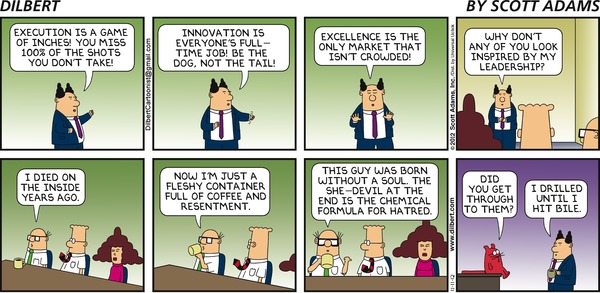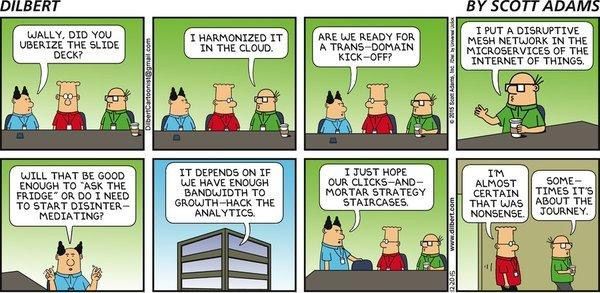buzz
(noun, verb)
/bʌz/
LISTEN

A buzz is a low humming sound, like the ones bees make. Lively and excited activity is also a buzz and, informally, a phone call can be called buzz too. As a slang term, a buzz is a feeling of excitement or exhilaration or of slight intoxication. As a verb, to buzz means ‘to make a buzzing sound,’ ‘to whisper or gossip,’ or, often followed by around or, in UK English, about, ‘to move busily from one place to another.’ Informally, it means ‘to call somebody on the phone.’
Example sentences
- I sat in the garden listening to the buzz of the bees on the lavender.
- Mark enjoys the buzz of the office when everyone is working hard to meet a deadline.
- I’ll give you a buzz at the weekend.
- The bungee jump gave Linda a buzz.
- A fly was buzzing at the window.
- Social media is buzzing about the scandal.
- Rob always seems to be buzzing around all over the place.
- I’m not sure if I’m going to be able to make that meeting; could you buzz me tomorrow? I should know by then.
Words often used with buzz
buzz off: go away. Example: “Your little brother is so annoying; can’t you just tell him to buzz off?”
In pop culture
Buzz Lightyear is the name of one of the main characters in the movie Toy Story. You can see the newly arrived Buzz introducing himself to the other toys in this clip:
Additional information
In aviation, to buzz is to fly low and close to a surface. This practice started in the 1940s, and was usually a warning on bases that target practice was going to start there soon. In slang, a buzz can also be a pleasant feeling of slight intoxication, usually from drinking.
Did you know?
A buzz cut is a short haircut done with clippers, so called because of the buzzing noise the clippers make. In this video clip, a hairdresser explains how a buzz cut is done:
Other forms
buzzer (noun), buzzing (adjective)
Origin
Buzz dates back to the late 14th century, in the form of the Middle English verb busse (pronounced buzze). Its origin is an imitation of the sound that bees and flies make. It has been used figuratively to describe the hum of human activity since the late 16th or early 17th centuries. The noun comes from the verb, and dates back to the early 17th century. Its first recorded meaning was figurative, ‘a busy rumor,’ but it was soon used for the literal sense as well. In the 20th century, it was also used to describe the sound of an airplane flying overhead, which is where the military sense of “to buzz” came from. “To give someone a buzz” dates back to the 1920s, and came from the buzzing sound the first telephones made. A buzz, meaning ‘a slight intoxication,’ dates back to the 1930s.
Word of the Day is released Monday through Friday.

Recommended for Preparatory Grades
The year 2022 was everything but typical in every way. No one anticipated the unsettling combination of war, rising prices, energy scarcity, and climate change. This was at a time when life was just starting to move forward after the COVID-19 epidemic.
On the other hand, 2022 has also established itself as a year of buzzwords. Here’s a Curious Times 2022 Round-Up of some of the top buzzwords of 2022.
Top 10 Buzzwords Of 2022!
Wordle
The online word puzzle game known as “Wordle” came out on top as the game that was searched for the most on Google. People get 6 opportunities to guess a new five-letter word each and every day. In addition, there are millions of users that participate in the game every single day.
Ukraine
The search term ‘Ukraine’ dominated the news search around the world. On a freezing morning in February, the nation awoke to find that its neighbour, Russia, had invaded its territory. There have been several months have passed since then. However, the conflict is not yet over.
Queen Elizabeth
The phrase “Queen Elizabeth had passed away” was one of the most often googled phrases in 2022. The British monarch who held the throne for the longest period of time and died at the age of 96 was the longest-reigning monarch in British history.
FIFA World Cup
During the FIFA World Cup, Google Search experienced its biggest volume of users in its 25-year history. In addition to Lionel Messi winning the World Cup for the first time. The 2022 tournament saw a legendary performance from Kylian Mbappe and a second-half comeback by France.
iPhone 14
In 2022, “iPhone 14” was one of the most searched terms on Google. The tech company is always very excited about a new iPhone. Even if people don’t plan to buy one, they argue a lot on social media about what new features it might or not have.
Indian Premier League
In 2022, searches on Google connected to sports were among the most popular searches in India. The Indian Premier League (IPL) came in first place on the table that tracks “searches” for 2022.
Metaverse
With Facebook changing its name to Meta to join the Metaverse, everyone wants to know what it is. The metaverse is just a network of 3D virtual worlds that are linked together. The focus of the metaverse is on social connections and building communities.
Artificial Intelligence (AI)
Scientists have been working on AI for a long time, and in the next few years, we’ll see more new uses. AI is the behaviour of software or machines that are smart enough to make decisions on their own and get better over time by learning from their mistakes.
Goblin mode
Oxford defines “goblin mode” as “unapologetic self-indulgent, lazy, slobby, or greedy behaviour that usually goes against social norms or expectations.” Goblin Mode is the Oxford 2022 Word of the Year.
Omicron
The World Health Organization uses the Greek alphabet to tell the different types of COVID-19 apart. In 2022 many people looked for “Omicron.” This type of COVID-19 was one of the most common ones this year.
What were your favourite buzzwords this year?
Curious Times is a leading newspaper and website for kids. We publish daily global news aligned to your learning levels (also as per NEP 2020): Foundational, Preparatory (Primary), Middle and Senior. So, check out the News tab for this. We bring kids’ favourite Curious Times Weekly newspaper every weekend with top news, feature stories and kids’ contributions. Also, check out daily JokesPoke, Tongue Twisters, Word of the Day and Quote of the Day, kids need it all the time.
Curious Times News Program for Schools for FREE. Over 5,000 schools and teachers from all over the world have joined our programme so that students and teachers can get FREE Educative Newspaper. Here, kids can take part in world events and win prizes and certificates for free through their schools.
Moreover, schools are sharing important School News, like interviews with the principal, notices about new students, contests, and results, not just on social media but also on a news website for kids and other schools.
Thus, do not wait any further, sign-up for your school for FREE.
The following social media platforms allow you to communicate with us: WhatsApp, Instagram, Facebook, Youtube, Twitter, and LinkedIn.
0 (Please login to give a Curious Clap to your friend.)
To post your comment Login/Signup
Image Credit : Curious Times
HEALTH, FITNESS & FASHION
Breathwork
The next big thing in wellness, breathwork is founded on the idea that breathing techniques can do everything from reducing stress to improving sleep.
One part meditation and one part lamaze class, breathwork will be the part of the soon-to-be-launched MindLabs online platform, which has dubbed itself the “Peloton of mental health”.
Unlike some wellness trends, this one has some scientific backing: there is evidence that controlled breathing can do things like alter a person’s mood and boost athletic performance.
Sea greens
Kale being so very 2015, sea greens — think kelp and wakame — are the new thing in leafy greens. They pack a nutritional punch, are high in soluble fibre, and offer a hit of umami all at once.
Expect to see your favourite cafe working sea greens into the menu and your favourite celebrity name-checking them in her morning smoothie.
Face gym
This does not mean posing for a selfie in athleisure wear but refers to the growing popularity of using face rollers, massage tools and even electric stimulation to supposedly tone and tighten face muscles. The theory is a needle-free face lift, thanks to massaging techniques intended to stimulate blood circulation and collagen production, although as with many beauty treatments it is very much a caveat emptor situation.
DIY face gyming has become popular during the pandemic in countries where the prevalence of COVID-19 has made people reluctant to head to a day spa or facialist.
Reducetarian
If you are trying to eat less meat, dairy and eggs in your daily life but lack either the desire or the willpower to go full vegetarian or vegan, you are probably a reducetarian. This trend has been going on for a while now — check out the number of non-dairy milks now on offer at the average cafe — but it is not going anywhere.
Just as Russian author Leo Tolstoy wrote that “every unhappy family is unhappy in its own way”, every reducetarian may have a slightly different reason for wanting to cut back, be it about their health, the environment or concerns about animal cruelty.
Regencycore
Blame this one on the success of the Netflix series, Bridgerton, but one of the big fashion trends tipped for 2022 involves tight corsets, empire-lines and lace gloves. This is a look inspired by regency-era fashion, rather than an attempt to ape it entirely.
Keep the smelling salts handy for passers-by when you opt to debut your statement puffed sleeves and pearl choker in your local Coles.
Pickleball
Routinely described as one of the fastest growing sports of recent years, could this be the year that this mash-up of badminton, table tennis and regular tennis really breaks through in Australia?
Why not? Australia already has a Pickleball Australia Association, founded in 2020, which is a start.
The sport, which involves hitting a small ball over a low net with a paddle, can be played inside or out, only needs two to four players and takes 10-20 minutes a game, so it is not exactly a huge commitment.
TECHNOLOGY
Extended reality
Sure, you’ve heard of virtual reality and maybe you have even pretended to understand how it works but what about extended reality?
Extended reality is not so much a new concept as an umbrella term that includes virtual reality, augmented reality — think Pokemon GO —and everything in between, up to and including the much-hyped idea of the metaverse.
The potential for simulated online worlds is often associated with computer games and other forms of entertainment but this also has big implications for the way we shop and work, which could one day be online in a virtual simulated environment akin to that depicted in a lot of B-grade science-fiction movies.
NFTs
If you made it through 2021 without knowing what a non-fungible token is, : congratulations. Unfortunately, 2022 may be the year you are forced to learn about them, if only to understand roughly half the jokes on Twitter.
The short version is that NFTs are digital tokens, which can be attached to anything from an original artwork to a video, in order to claim ownership of it and trade it on the blockchain.
An NFT attached to a photo of model Emily Ratajkowski that shows her standing in front of a different Instagram photo of herself, for example, sold for nearly $200,000 last year. Confused? Think of it as bragging rights that are only worth something so long as somebody else believes the hype too.
Other celebrities, including Paris Hilton, Shawn Mendes and Kate Moss, have all got onboard the NFT train to varying degrees, although the jury may still be out on whether it represents a major shake-up to the worlds of art, music and culture or a very modern take on a pyramid scheme.
DeFi
DeFi or decentralised finance is a catch-all term for the world of finance that aims to operate outside conventional banking, using cryptocurrency.
The most famous crypto currency remains Bitcoin but there are too many to name here, although they can collectively be dubbed Altcoin. Anything relating to cryptocurrency tends to inspire passion on both sides and Hollywood actor Matt Damon has already come in for ridicule this year after the widespread distribution of an ad in which he compared investing in a cryptocurrency exchange app to some of history’s greatest achievements.
With banks around the world now jostling for a slice of the crypto market that was supposed to render them irrelevant, you are going to hear more about centralised versus decentralised finance in the year ahead.
Web 3
If Web 1 was the days of AltaVista, Napster and terrible-looking webpages of the 1990s, and Web 2 was the slicker days dominated by Google and Facebook, then Web 3 is a way to describe what is supposed to come next.
Although the term was coined to describe an online future that never arrived, these days it usually refers to an internet built on blockchain technology, data decentralisation and which — theoretically at least — aims to take power away from big tech.
Techlash
Signs of a backlash against the world’s big technology companies — think Facebook, Google and Apple — has been on the rise for years. Partly, it is about concerns over what they do with users’ data, partly it is about their social responsibility to restrict misinformation and partly it relates to issues of censorship.
Governments love to sound off about big tech, despite the fact — or perhaps because — there is not much they can do about it, so expect to see more of it this year.
The new space race
The 2022 space race is not about the Cold War-era dichotomy of the US versus the USSR but about the incredibly rich, who can afford to pay millions to go to space, versus everyone else.
Watch on for an explosion in space tourism, Elon Musk’s ambitions to make it to Mars and NASA’s plan to crash a space probe into an asteroid, which sounds a lot like it should be a Hollywood blockbuster starring Ben Affleck.
THE WORLD
The pandemic election(s)
There is a school of thought that voters are reluctant to trade in political leaders during times of crisis. Try telling that to former US president Donald Trump, who was ousted in the midst of the COVID-19 pandemic.
Australian voters will go to the polls on or before May 21 and it is hard to imagine the result will not be a referendum on how the Government has steered the country through COVID-19.
Further afield, international elections to watch include France, where incumbent Emmanuel Macron remains the favourite but a right-wing rival is gaining traction, and the US mid-terms.
The pandemic Olympics
The Olympic Games have always had a political element but with this year’s Winter Olympics in Beijing, that will ramp up considerably.
Diplomatic boycotts have already been announced but the games will go on and there are several medal hopeful Aussies. Jarryd Hughes claimed a silver at the 2018 Games in South Korea in the snowboard cross.
Australianshave a natural affinity with the Winter Games given our near arctic climate. We understood few of the sports, like the skeleton where competitors hurtle head first down a track of ice and pray to survive, but love watching the snowcapped resort towns they always take place in on TV.
Endemic
Could this be the year that COVID-19 goes from pandemic to endemic in Australia and the rest of the western world?
While once it might have been hoped that coronavirus could go the way of smallpox or polio, it now seems increasingly likely it will become endemic. That means it will continue to circulate in the world — and there will be outbreaks in some countries, potentially seasonal — but enough people will be immune that it will become less transmissible and outbreaks will be more localised.
Content without borders
Streaming services may be to blame for keeping the world motionless on the couch for hours on end but they have also done wonders for popularising foreign language TV and movies to English-speaking audiences.
Squid Game, Lupin and Money Heist — all foreign language hits for Netflix — will be just the beginning as streaming platforms rush to capitalise on audiences’ newfound willingness to read subtitles in pursuit of a good story.
Stagflation
If 2021 was the year everyone was talking about inflation, 2022 could be the year the world wraps its head around the prospect of stagflation.
Stagflation happens when high inflation is coupled with low economic growth and often high unemployment. Labour shortages and wage price pressures in the US and the UK have raised the prospect of stagflation there.
Australia may yet dodge the global trend, given inflation is running pretty close to the Reserve Bank of Australia’s preferred band of 2-3 per cent, while the country is also less vulnerable to the short-term fluctuations in the cost of labour because in part the wage-setting process often involves multi-year agreements.
Platinum Jubilee
After a year that saw the death of Prince Philip and the departure of Prince Harry and Meghan Markle from British Royal Family duties, few would deny Queen Elizabeth II a chance at a knees-up.
Come June, the UK will be celebrating the Queen’s 70th year of service and hoping for a less dramatic 2022 for the beloved matriarch.
WA
RATs
Rapid antigen tests have gone from a three-word acronym few people in Australia would have heard of to this year’s must-have, making 2020’s inexplicable rush on toilet paper look positively calm.
New rules about testing requirements for COVID-19 have made RATs just about impossible to find in some States, while WA has only just agreed to lift a ban on them. Frustration at inflated prices for the tests has not yet hit WA but stand by, with pharmacists already concerned about their ability to meet demand.
Hybrid work
Predictions about the death of the office may have been overcooked but the ongoing nature of the COVID-19 pandemic means that many workers will be embracing a combination of working from home and on-site for some time to come.
Employees who have enjoyed a taste of hybrid work may push to retain it, given it offers more flexibility for working parents in particular. Employers in competitive industries may find themselves under pressure to offer hybrid work options to retain or attract workers.
Baby bust v boom
Falling birth rates across much of the western world — and China — will continue to be a talking point, with 51 countries now facing shrinking working age populations, compared to 17 in 2000.
Tesla chief executive and father-of-six Elon Musk has warned about the economic consequences, while the Chinese Government, once the architect of the country’s one-child policy, now wants its citizens to have three children for the good of the country.
Australia’s fertility rate hit a record low in 2020 of just 1.58 births per woman, although in WA there were 1300 more babes born in 2021 than 2020, suggesting the State may be bucking the trend — at least for now.
Vaxport
West Australians who want to go to the pub or see a concert this year will have to embrace the idea of vaccine passports and get used to have their proof-of-jab close to hand.
Anti-vaxxers concerned this represents a slide towards nazi Germany might want to remember that plenty of venues, from pubs to airports to primary schools, already require proof of age, identity or vaccination status.
Сегодня я хочу поговорить о таком явлении в английском языке, как buzzwords. Что это за “жужжащие слова” (именно так buzzwords переводится буквально), как они используются, и надо ли их знать и использовать в своей речи?
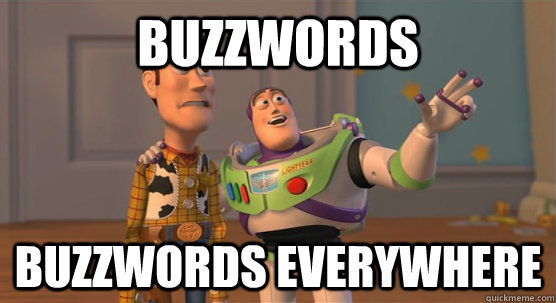
Buzzwords как бы подчеркивают, что говорящий “в теме”, разбирается в современных тенденциях и свободно оперирует профессиональными терминами. В то же время многие скептически относятся к употреблению buzzwords – полагая, что часто за употреблением модных слов прячется некомпетентность. Вроде как сказал по-модному – и уже не надо думать и вдаваться в детали. Но хватит рассуждать, давайте я приведу несколько примеров.
synergy
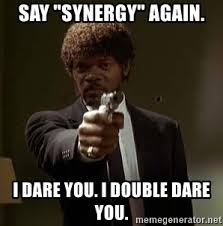
I think you and I together will excel at working together. I fill our synergy already. Я думаю мы с вами добьемся блистательных результатов, работая вместе. Я уже чувствую синергию.
leverage
Буквально leverage – это “рычаг”, в том смысле, в котором вы видели рычаг на уроке физики или в рассказах о жизни Архимеда. С помощью рычага, можно поднять вес, который вы не сможете поднять просто так. Изначально придя в корпоративных сленг, и превратившись в глагол, to leverage – это использовать что-то малое, для получения большого. Впрочем, сейчас его употребляют все кому не лень просто в значении “использовать”.
Let’s leverage our new marketing strategy to get the at least 30% of market share. Будем использовать новую маркетинговую стратегию, чтобы получить как минимум 30% рыночной доли.

going forward
Going forward, “на пути вперед” – это модная замена обычным выражениям “from now on” (с этого момента) или “in the future” (в будущем).
Going forward, if you have any questions feel free to contact me. В будущем, если у вас будут какие-то вопросы – обращайтесь ко мне.
reach out
Reach out, т.е. дотянуться до кого-то – модное слово, которое на самом деле означается “обратиться”, “вступить в контакт”.
Can you please reach out to legal department, we need their help reviewing this contract. Свяжитесь, пожалуйста, с юридическим отделом, нам будет нужна их помощь с этим договором.
rockstar
Ни рев гитар, ни шум забитых фанатам стадионов тут не при чем. Рок-звездой, rockstar, то ли в шутку, то ли всерьез называют хорошего специалиста с какой-то области.
I know someone who can help with this. My university classmate works in marketing consulting now, he’s a real marketing rockstar. Я знаю, кто может нам помочь. Мой университетский одноклассник работает в маркетинговом консалтинге, он настоящая звезда маркетинга.
Очень популярны такие слова для написания резюме. Именно в резюме соискатель хочет показать себя с самой своей лучшей стороны, употребив при этом максимально “актуальные” выражения. Впрочем, не спешите копировать их в свое резюме – от того, что ими часто злоупотребляют, для кадровиков это скорее отрицательный сигнал. Вот некоторые из таких buzzwords:
- Go-getter – человек, настроенный на результат, человек добивающийся желаемого
- Team player – командный игрок, т.е. тот, кто успешно работает с другими сотрудниками – не конфликтует, помогает другим и болеет за результат всего коллектива
- Detail-oriented – обращающий внимание на тонкости, проверяющий все до мелочей
- Results-driven – стремящийся к результатам, сотрудник, для которого главное – достижение цели
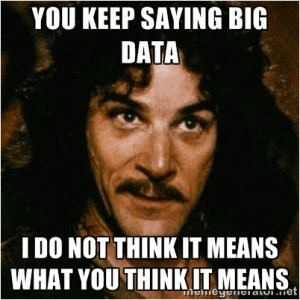
- Omnichannel – “всеканальный”. То есть наша реклама будет и в поисковых системах, и в виде баннеров, и в социальных сетях, и вообще везде, куда сможем ее поставить
- Smash target – достигнуть цели. Но просто достигнуть – это недостаточно круто, теперь успешное выполнение плана, это “сокрушить, разбить цели” – так что от них камня на камне не останется
- User’s journey – “путешествие пользователя”, или, скорее, “путь пользователя” – предполагаемый сценарий взаимодействия пользователя с сайтом или приложением
- Meaningful interaction – “осмысленное взаимодействие”, опять же, пользователя и сайта. Не очень понятно, какое еще может быть взаимодействие, но ладно, не будем придираться
- Customer centric – “ставящий потребителя в центр”. Все остальное для нас не так важно, лишь бы потребитель был в центре внимания. Ага, именно так
- Bite-size content – “контент на один укус”. При всем моем скептическом отношении ко многим buzzwords словам, это мне действительно нравится. Оно действительно точно отражает то, как пользователи потребляют контент – и соответственно, как сайты его предлагают. На один укус – прожевал, проглотил, пошел к следующему следующий. Можно сколько угодно сокрушаться, как мы дошли до жизни такой, но современная реальность именно такая, и этот buzzword ее отражает как нельзя лучше.
Ну и напоследок, еще раз выскажу свое отношение к этому явлению. Вы уже наверное, заметили, что отношение мое скептическое. Но если посмотреть объективно – нужно ли знать эти слова, нужно ли употреблять?
Знать – конечно нужно. Если вы работаете в современном офисе, рано или поздно – в электронном письме, на встрече, в презентации – встречи с buzzwords вам не избежать. И, конечно же лучше понимать, о чем идет речь, чем, хлопать глазами и теряться. К счастью, в половине случаев, зная контекст и имея достаточный уровень английского, несложно догадаться о значении новых слов. Если же нет – не стесняйтесь спросить у осведомленных коллег (или у Гугла, он может быть осведомлен еще лучше).
Как к ним относиться – дело лично ваше. Мне кажется, что многие из этих слов действительно остроумны и точны. Но проблема в том, что их начинают использовать к месту и, еще чаще, не к месту – остроумие стирается, вместо точности появляется такой туман якобы компетентности.
Не забывайте об этом. Если в вашей речи таки слов чересчур много – собеседник может запросто заподозрить вас в том, что вы “темните” или просто пытаетесь скрыть свою некомпетентность.
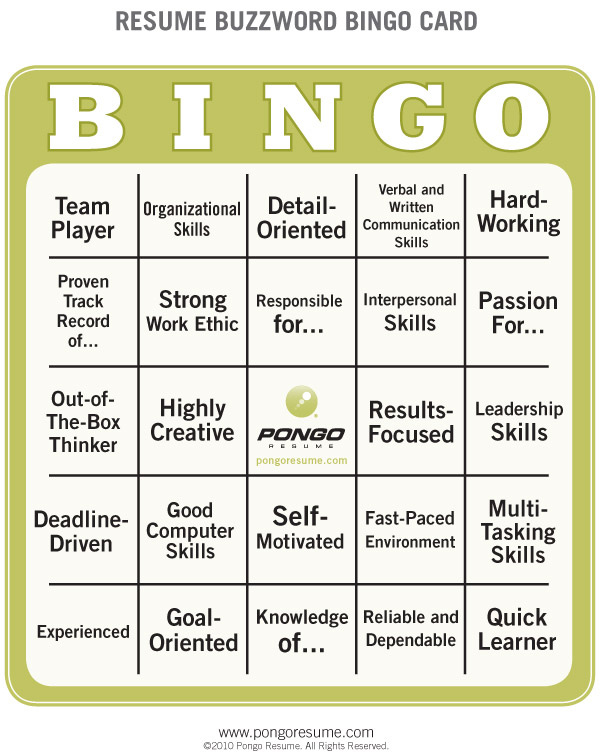
Кстати, если отложить шутки в сторону: генератор для buzzword bingo (смотри ссылку ниже) – отличный способ познакомиться с buzzwords, модными словечками. Просто генерируйте случайные карточки и проверяйте себя – все ли слова вы знаете. Главное, не злоупотребляйте ими потом в реальной жизни.
На закуску, клип на песню про buzzwords американского певца-юмориста “Странного Эла” Янковиича.
Дополнительные материалы:
Генератор Buzzword Bingo
https://businessbuzzwordbingo.com
From Wikipedia, the free encyclopedia
A buzzword is a word or phrase, new or already existing, that becomes popular for a period of time. Buzzwords often derive from technical terms yet often have much of the original technical meaning removed through fashionable use, being simply used to impress others. Some «buzzwords» retain their true technical meaning when used in the correct contexts, for example artificial intelligence.[1][2]
Buzzwords often originate in jargon, acronyms, or neologisms.[3] Examples of overworked business buzzwords include synergy, vertical, dynamic, cyber and strategy.
It has been stated that businesses could not operate without buzzwords, as they are the shorthands or internal shortcuts that make perfect sense to people informed of the context.[4] However, a useful buzzword can become co-opted into general popular speech and lose its usefulness. According to management professor Robert Kreitner, «Buzzwords are the literary equivalent of Gresham’s Law. They will drive out good ideas.»[5]
Buzzwords, or buzz-phrases such as «all on the same page», can also be seen in business as a way to make people feel like there is a mutual understanding. As most workplaces use a specialized jargon, which could be argued is another form of buzzwords, it allows quicker communication. Indeed, many new hires feel more like «part of the team» the quicker they learn the buzzwords of their new workplace. Buzzwords permeate people’s working lives so much that many don’t realise that they are using them. The vice president of CSC Index, Rich DeVane, notes that buzzwords describe not only a trend, but also what can be considered a «ticket of entry» with regards to being considered as a successful organization – «What people find tiresome is each consulting firm’s attempt to put a different spin on it. That’s what gives bad information.»[6]
Buzzwords also feature prominently in politics, where they can result in a process which «privileges rhetoric over reality, producing policies that are ‘operationalized’ first and only ‘conceptualized’ at a later date». The resulting political speech is known for «eschewing reasoned debate (as characterized by the use of evidence and structured argument), instead employing language exclusively for the purposes of control and manipulation».[7]
Definition[edit]
The Concise Oxford English Dictionary defines a buzzword (hyphenating the term as buzz-word) as a slogan, or as a fashionable piece of jargon: a chic, fashionable, voguish, trendy word a la mode.
It has been asserted that buzzwords do not simply appear, they are created by a group of people working within a business as a means to generate hype.[8] Buzzwords are most closely associated with management and have become the vocabulary that is known as «management speak»: Using a pompous or magisterial term, of or relating to a particular subject employed to impress those outside of the field of expertise.
It could also be called buzz phrase or loaded word.[9]
What this means is that when a manager uses a said buzzword, most other people do not hear the meaning, and instead just see it as a buzzword. However it has been said that buzzwords are almost a «necessary evil» of management, as a way to inspire their team, but also stroke their own egos.[10] With that being said, a buzzword is not necessarily a bad thing, as many disciplines thrive with the introduction of new terms which can be called buzzwords. These can also cross over into pop culture and indeed even into everyday life.[8] With media channels now operating through many media, such as television, radio, print and increasingly digital (especially with the rise of social media), a «buzzword» can catch on and rapidly be adapted through the world.
Origin[edit]
The origin of buzzwords can be seen in Hallgren & Weiss (1946) as coming from business students studying at Harvard University as a way to help them gain better results from their studies. Such language terms were collated and then became what is known today as «buzzwords». During the early years of buzzwords, buzzwords were used by students as a means to enable them to quickly recall items of importance. As an example, «If his analysis does not highlight the most important problems he has ‘poor focus’, and if he fails to emphasize important recommendations he will be accused of ‘tinkering’. If the sequence for the ‘implementation’ of the recommendations is not good it is a matter of ‘poor timing’. To succeed, the student must ‘get on top of the problem’. He must ‘hit the problem’ and not ‘shadow box’ it. If he cannot do these things he might just as well ‘turn in his suit'».[11]
Students have used many different buzzwords to describe the situation that they are in, and how this might affect a moment in their everyday life. From studying these business students, Hallgren & Weiss (1946) noticed that business students could speak with apparent authority. It also seemed as if using the right buzzword was more important than what the student came up with as an answer. Buzzwords have a strong influence on business culture and are commonly used in business speak.
In popular culture[edit]
Jon Keegan of the Wall Street Journal has published a Business Buzzwords Generator, which allows readers to use a randomizer to assemble «meaningless business phrases using overused business buzzwords» – for example, «This product will incentivize big data and demonstrate innovative performance in the playing field.»[12]
Forbes hosts an annual «Jargon Madness» game, in which 32 of «corporate America’s most insufferable expressions» are played off against each other in a bracketed, basketball-style tournament to determine the buzzword of the year.[13]
LinkedIn publishes an annual list of buzzwords to avoid in creating résumés (British English: CVs) – «trite, empty words that may sound good to your ear but say almost nothing». The 2014 list: motivated, passionate, creative, driven, extensive experience, responsible, strategic, track record, organizational, and expert.[14]
When people are approaching a meeting where they expect the presenters to use many buzzwords, they may prepare a game of buzzword bingo, where players score points each time a particular buzzword is used.[15]
Patch Products has published a board game called Buzz Word.[16]
The «Weird Al» Yankovic album Mandatory Fun contains the song «Mission Statement», which is a long list of essentially meaningless buzzwords.[17]
Examples[edit]
General conversation[edit]
- Alignment[18]
- Antifragile[19]
- At the end of the day[18]
- Break through the clutter[20]
- Bring to the table[21]
- Buzzword[20]
- Clear goal[22]
- Disruptive innovation[23]
- Diversity[24]
- Generation X[18]
- Globalization[25]
- Going forward (instead of «in the future» or «from now on»)[26]
- Grow[27] – as in «grow the business».
- Impact[27] – instead of effect as a noun
- Leverage[20] – used as verb to mean magnify, multiply, augment, or increase.
- Millennial[18]
- New normal[28]
- On the runway[18]
- Organic growth[20]
- Paradigm[29]
- Paradigm shift[20][30]
- Proactive[27][29]
- Reach out[31][32] – as in «I’ll reach out to sales to get the latest figures».
- Sea change[20]
- Sisterhood[33]
- Strategic Communication (also known as «Stratcom»)
- Streamline[20]
- Survival strategy[18]
- Synergy[20][27][29]
- Think outside the box[18][27]
- Warfighter[34]
- Wellness[35]
- Wheelhouse (as in «That’s in my wheelhouse.»)[36]
- Win-win[18]
Education[edit]
{{Columns-list|colwidth=15em|
- Accountable talk[37]
- Higher-order thinking[38]
- Run like a business[39]
- Student engagement[40][41][42]
Business, sales and marketing[edit]
- Analytics[43]
- Bandwidth[18]
- Bizmeth[44] – portmanteau of «business method».
- Brick-and-mortar[30]
- Business process outsourcing[45][46] – also known as BPO.
- Buzzword compliant[47]
- Co-opetition[48]
- Come-to-Jesus moment[49]
- Core competency[50]
- Drill down[51]
- Early-stage[52]
- Enable[53]
- Event horizon[54]
- Eyeballs[30]
- Free value[20]
- Fulfilment issues[44]
- Holistic (approach/integration)[55]
- Hyperlocal[56]
- Innovation[57]
- Knowledge process outsourcing[45] – also known as KPO.
- Logistics[58] – Now commonly used for shipping, and shipping companies
- Long tail[59]
- Low-hanging fruit[20][60]
- Make it pop[20]
- Mindshare[30]
- Mission critical[30]
- Management visibility[30]
- New economy[30]
- Next generation[44]
- Offshoring[54] – also known as Offshore outsourcing, or something being offshorable.
- One Team [61]
- Pain point[32][62]
- Passionate[63]
- Privacy[64][65]
- Return on investment[20] – also known as ROI.
- Reverse fulfilment[44] – processing returned products.
- Rightshoring[66]
- Seamless (integration)[67]
- Share options[44]
- Solution[18]
- SOX[68] – abbreviation of Sarbanes-Oxley.
- Sustainability[69]
- Take Offline[51]
- Value-added[18]
- Visibility[54]
- Water under the bridge [70]
Science and technology[edit]
- 4G[68]
- 4K resolution[71]
- 5G[72]
- Ajax[68]
- Algorithm[73]
- Benchmarking[74]
- Back-end[44]
- Big data – larger data sets than last month [75]
- Bleeding edge[44]
- Blockchain[76]
- Bricks-and-clicks[44]
- Clickthrough[44]
- Collaboration[77]
- Content management[77]
- Content Management System[78] – also known as CMS.
- Convergence[79]
- Cross-platform[44]
- Datafication[80]
- Data mining[81] – any kind of data collection or analysis, even simple statistics such as taking averages on large data sets
- Data science[82]
- Deep dive[32]
- Deep learning[83]
- Deep web[84] – used interchangeably with «Dark web» even though they’re not the same
- Design pattern[85]
- DevOps[86]
- Digital divide[78]
- Document management[77]
- Dolby Vision[71]
- Dot-bomb[30][44]
- ____-Driven Development[87]
- E-learning[88]
- Eco- (related to economy or environment-friendly, incorrectly called «ecological»)
- End-to-end
- Engine[89] — most often in reference to physics engine
- Enterprise Content Management[78] – also known as ECM.
- Enterprise Service Bus[90] – also known as ESB.
- Folksonomy[78][failed verification]
- High dynamic range[71][91]
- HDR10[71]
- HTML5[92]
- Ideation Management[93]
- Immersion[94]
- Information superhighway / Information highway
- Internet of Things[95]
- JavaScript[96]
- LCD[71]
- LED[71]
- Metaverse[97][98]
- Mobile[99]
- Modularity[100][101]
- Nanotechnology[102]
- Netiquette[78]
- Next Generation[94] (also «NextGen»)
- OLED[71]
- QLED[71]
- Quantum dot[71]
- Quantum supremacy[103]
- PaaS
- Podcasting[68][78]
- Real-time[78]
- Sensorization[104]
- SaaS[68]
- Scalability[105][106]
- Social bookmarking[68]
- Social software[78]
- Spam[78]
- SUHD[71]
- Sync-up[30]
- Tagging[78]
- Transmedia[107]
- Ultra-high-definition_television[71][91]
- User generated content[108]
- Virtualization[68]
- Vortal[109]
- Web 2.0[68][78]
- Web3.[110]
- Webinar[44][78]
- Web services[77]
- Wide color gamut[91]
- Wikiality
- Workflow[77][111]
Politics and current affairs[edit]
- Coward[example needed]
- Fit for purpose[112]
- Political capital[113]
- Stakeholder[114]
- Establishment[115]
- Woke[116][117]
See also[edit]
- Ambiguity – Type of uncertainty of meaning in which several interpretations are plausible
- Buzzword compliant – Suggests product supports fashionable features
- Catchphrase – Phrase or expression recognized by its repeated utterance
- Corporate jargon, also known as Marketing speak – Buzzwords and specalialized vocabulary used by businesspeople
- Gartner hype cycle – Graphical presentation of the maturity of specific technologies
- Virtue word – frequently used word in political discourse that uses an abstract concept to develop support
- Law of the instrument, also known as Golden hammer – Over-reliance on a familiar tool
- Loaded language – Rhetoric used to influence an audience
- Marketing buzz – Interaction which amplifies marketing message
- Memetics – Study of self-replicating units of culture
- Pleonasm – Redundancy in linguistic expression
- Psychobabble – a form of speech or writing that uses psychological jargon, buzzwords, and esoteric language to create an impression of truth or plausibility, by a person lacking the experience and understanding necessary for the proper use of psychological terms
- Weasel word – Words or phrases using vague claims
References[edit]
- ^ «Buzzword». Merriam-Webster. Retrieved 3 February 2015.
- ^
Compare: «buzzword n. orig. and chiefly U.S. a keyword; a catchword or expression currently fashionable; a term used more to impress than to inform, esp. a technical or jargon term.» «buzz». Oxford English Dictionary (Online ed.). Oxford University Press. (Subscription or participating institution membership required.) - ^ Grammar.About.com — definition of buzzword.
- ^ Ettorre, Barbara (September 1997). «What’s the Next Business Buzzword?». Management Review. 86 (8). Retrieved 2015-09-06.
How can corporate America operate without buzzwords? They will be with us always because business organizations are a ready market for them. … These are internal shortcuts. To outsiders, they might be little understood, but to everyone in the organization, they make perfect sense.
- ^
Ettorre, Barbara (September 1997). «What’s the Next Business Buzzword?». Management Review. 86 (8). Retrieved 2015-09-06.Robert Kreitner, senior lecturer and professor of management at Arizona State University, equates buzzwords with the economic theory holding that bad money drives out good money. ‘Buzzwords are the literary equivalent of Gresham’s Law,’ Kreitner says. ‘They will drive out good ideas[…].’
- ^ Ettore, B. (1997, September). What’s the next business buzzword? Management Review, 33–35.
- ^ Loughlin 2002, pp. 229–242.
- ^ a b Collins 2000.
- ^ «Definition of BUZZWORD».
- ^ Cluley 2013.
- ^ Hallgren & Weiss 1946, p. 263.
- ^ «Business Buzzwords Generator». Wall Street Journal:Projects. Archived from the original on 3 February 2015. Retrieved 3 February 2015.
- ^ Nelson, Brett (February 5, 2013). «Business Jargon Bracketology: Which Annoying Corporate Buzzword, Cliché Or Euphemism Will Win Forbes’ NCAA-Style Tourney? Vote Now!». Forbes. Retrieved 3 February 2015.
- ^ Adams, Susan (January 21, 2015). «Ten Buzzwords To Cut From Your LinkedIn Profile In 2015». Forbes. Retrieved 3 February 2015.
- ^ Belling, Larry (2000). «Buzzword Bingo». Archived from the original on 18 September 2017. Retrieved 5 November 2009.
- ^ «Buzz Word». Patch Products, Inc. Retrieved 3 February 2015.
- ^ «‘Weird Al’ Yankovic Announces His ‘Mission Statement’ in Final Video». billboard.com. 21 July 2014. Retrieved 2015-05-30.
- ^ a b c d e f g h i j k «Buzzwords Gone Bad». Marketing Today. Retrieved 2008-01-04.
The national poll includes responses from 150 senior executives – including those from human resources, finance and marketing departments – with the nation’s 1,000 largest companies.
- ^ Geddes, Linda (2 December 2012). «Chaos Is Good for You». Slate.com. Retrieved 22 October 2020.
- ^ a b c d e f g h i j k l «Columbus Alive: Buzz Kill». Columbus Alive.
- ^ «MBA Jargon Watch». johnsmurf.com.
- ^ «Georgia Aspires to «Lead the Nation in Improving Student Achievement» US Education Delivery Institute «Georgia Aspires to «Lead the Nation in Improving Student Achievement» | U.S. Education Delivery Institute». Archived from the original on 2012-05-02. Retrieved 2011-08-11.
- ^ Yglesias, Matthew (1 May 2013). «Stop ‘Disrupting’ Everything». Slate.com. Retrieved 22 October 2020.
- ^ Diversity, more than a buzz word, The Daily Campus, February 19, 2004
- ^ «Penn State University Press: Globalization: Buzzword or New Phenomenon?». Archived from the original on September 1, 2006.
- ^ «13 Buzzwords to Stop Using». 5 November 2012.
- ^ a b c d e «Business buzzword hall of fame». Blethen Maine Newspapers. September 2002. Archived from the original on 2007-12-12. Retrieved 2008-01-04.
- ^ Frangos, Alex (12 December 2014). «China’s ‘New Normal’ Is Dose of Old Reality». Wall Street Journal.
- ^ a b c «The Buzzword Bingo Book: The Complete, Definitive Guide to the Underground Workplace Game of Doublespeak», author: Benjamin Yoskovitz, publisher: Villard, ISBN 978-0-375-75348-0
- ^ a b c d e f g h i «Cnet.com’s Top 10 Buzzwords». CNET. CBS Interactive.
- ^ http://www.thedailymuse.com/career/business-jargon/ Business Buzzwords to Banish from your Vocabulary, by Anneke Jong, September 15, 2011 accessed 7 Sep 2012
- ^ a b c Is it time to buck the buzzword trend?, The Age
- ^ Tétreault, Mary Ann; Teske, Robin L. (2003). Partial Truths and the Politics of Community, Volume 2. ISBN 9781570034862.
- ^ «AFRL partners with entrepreneurs to light the way for the warfighter». Wright-Patterson AFB.
- ^ «American School Board Journal: Case Studies». Archived from the original on February 2, 2007.
- ^ Watson, Bruce. «Buzzword of the Week: Wheelhouse».
- ^ «Archived copy» (PDF). Archived from the original (PDF) on 2012-04-05. Retrieved 2011-08-11.
{{cite web}}: CS1 maint: archived copy as title (link) - ^ Killion, Kevin. «Education Buzzwords: Image and Reality». The Illinois Loop.
- ^ Tom Abate, «Would Kids Be Better Off If Schools Were Run Like Business? / Silicon Valley execs propose ballot initiative» http://articles.sfgate.com/1998-09-08/business/17729946_1_public-school-silicon-valley-public-education
- ^ Chris Opsal, «Engagement: A Brief Visual Overview of an Educational Buzzword» https://attendengageinvest.wordpress.com/2012/12/17/engagement-a-brief-visual-overview-of-an-educational-buzzword/
- ^ Michael D. Spiegler, «Reflections on the 2010 Student Engagement Seminar» [1]
- ^ Kenny, G. Kenny, D. and Dumont, R. (1995) Mission and Place: Strengthening Learning and Community Through Campus Design. Oryx/Greenwood. p. 37
- ^ ‘Analytics’ buzzword needs careful definition. 7 February 2006. Accessed on: 6 January 2010
- ^ a b c d e f g h i j k l «Buzzword Bingo». evolt.org.
- ^ a b «India Daily: The coming wave of Knowledge Process Outsourcing». Archived from the original on April 18, 2007.
- ^ «BPO Adaptability: Boardroom Buzzword or Competitive Advantage?». Multichannel Merchant.
- ^ Paul McFedries. «buzzword-compliant — Word Spy». wordspy.com.
- ^ «FindArticles.com — CBSi». findarticles.com.
- ^ «‘Come To Jesus Moment’ Is The Most Annoying Business Expression On Earth». Forbes.
- ^ «Neegzistuoja — Serveriai.lt». demo.moneymakers.lt.
- ^ a b Peacock, Louisa (15 May 2014). «So, office jargon: the 19 worst offenders in management speak». Archived from the original on 2022-01-12 – via www.telegraph.co.uk.
- ^ «What’s hiding behind the buzzwords in job ads?». Fortune.
- ^ http://www.learnings.org/learn.asp?word=enable&d=101[bare URL]
- ^ a b c «The WordSpy: Business buzzwords category». Archived from the original on March 29, 2007.
- ^ «Funky Dragon : Buzz words». Archived from the original on 2007-10-25. Retrieved 2008-11-17.
- ^ Slattery, Laura (29 December 2011). «What looms large on the media landscape as we hurtle towards 2012?». Irish Times.
- ^ James, Geoffrey (September 8, 2014). «7 Overused Marketing Buzzwords (and What to Say Instead)». Inc.com.
- ^ Power, Carla; Gatsiounis, Ioannis (16 April 2007). «Meeting the Halal Test». Forbes. Archived from the original on 22 April 2007.
- ^ «25 Essential Digital Marketing Terms You MUST Know | MarketingGuru». March 26, 2020.
- ^ Paul McFedries (October 19, 1996). «low-hanging fruit». Word Spy.
- ^ Masumi Koizumi (2 December 2019). «Japanese rugby’s ‘One Team’ motto declared buzzword of the year». japantimes.co.jp/.
- ^ Bruce Watson. «Buzzword of the Week: Bringing the ‘Pain Point’«. DailyFinance.com.
- ^ Burn-Callander, Rebecca. «Ten tired job ad buzzwords». managementtoday.co.uk. Haymarket Business Interactive.
- ^ «Don’t Believe Apple’s Privacy Grandstanding» – via www.youtube.com.
- ^ «Will Apple Ever Leave China?» – via www.youtube.com.
- ^ Global Business Watch: Rightshoring: The Latest Outsourcing Buzzword Archived 2007-08-08 at the Wayback Machine
- ^ Cohan, Peter E. (2006). «The Content-Free Buzzword-Compliant Vocabulary List» (PDF). pragmaticmarketing.com. 4 (2): 18.
- ^ a b c d e f g h «Computer Glossary, Computer Terms — Technology Definitions and Cheat Sheets from WhatIs.com — The Tech Dictionary and IT Encyclopedia». techtarget.com.
- ^ «The new business buzzword is: Sustainability » Business » EagleTribun…». archive.is. 22 January 2013. Archived from the original on 19 August 2012. Retrieved 27 November 2020.
- ^
The dictionary definition of Water under the bridge at Wiktionary
- ^ a b c d e f g h i j k David Kender (January 4, 2017). «Get Caught Up on TV Buzzwords like UHD, HDR, and OLED». Reviewed.
- ^ Horaczek, Stan (9 January 2019). «A handy guide to the tech buzzwords from CES 2019». Popular Science. Retrieved 21 May 2019.
- ^ «Consumer Reports Online». consumerreports.org. Archived from the original on 2013-07-10. Retrieved 2020-11-27.
- ^ Wiebe, Jennifer (1 January 1997). «Benchmarking 101». AllBusiness. Archived from the original on 25 October 2007.
- ^ Pelt, Mason (26 October 2015). ««Big Data» is an over used buzzword and this Twitter bot proves it». siliconangle.com. SiliconANGLE. Retrieved 4 November 2015.
- ^ Griffith, Erin. «187 things the blockchain is supposed to fix». Wired. Retrieved 22 January 2019.
- ^ a b c d e IT Toolbox: Knowledge Management Knowledge Base Archived 2007-02-27 at the Wayback Machine
- ^ a b c d e f g h i j k l «Online Consultation Technologies Centre of Expertise – Glossary». 25 February 2005. Archived from the original on 25 February 2005.
- ^ Ford, Sam (January 19, 2007). «The Convergence Manifesto I: Convergence—The Buzzword». Futures of Entertainment.
- ^ Cukier, Kenneth; Mayer-Schoenberger, Viktor (2013). «The Rise of Big Data». Foreign Affairs (May/June): 28–40. Retrieved 24 January 2014.
- ^ «OKAIRP 2005 Fall Conference, Arizona State University» (PDF). Archived from the original (PDF) on 2014-02-01.
- ^ Press, Gil (2013-08-19). «Data Science: What’s The Half-Life Of A Buzzword?». Forbes.
- ^ The term deep learning is hype i.e. exaggeration for the following reason: Hofstadter, Douglas. «Reflections on Machine Translation». youtube.com. Universität Köln. Archived from the original on 2021-12-11. Retrieved 22 January 2019.
- ^ Hess, Ken. «2014’s top ten technology buzzwords to learn and to avoid». ZDNet. Retrieved 17 May 2015.
- ^ Trenka, Tom (April 2002). «Coding For Portability, Part 2». 13thparallel.org.
- ^ «Industry Watch: Behind the APM and DevOps buzzwords». SD Times. Archived from the original on 2012-05-10. Retrieved 2012-05-07.
- ^ Test-driven development, Behavior-driven development, Feature-driven development
- ^ «InsideKnowledge Magazine: The winning formula: A blended approach to cross-platform content». ikmagazine.com.
- ^ Yoon, Andrew (May 14, 2012). «Black Ops 2 studio head defends lack of ‘new engine’«. Shacknews.
- ^ «Enterprise Service Bus (ESB): Lasting concept or latest buzzword?». SearchSOA.
- ^ a b c «UHD, HDR, WCG Offer New Options for Content Creators and Consumers». Technicolor.
- ^ «HTML Standard». html.spec.whatwg.org.
- ^ «3DEXPERIENCE Platform». my.3dexperience.3ds.com.
- ^ a b «Nokia — Networks & Technologies». Nokia. Archived from the original on 2006-12-12. Retrieved 2007-04-07.
- ^ «Internet of Things — Microsoft». microsoft.com. Microsoft.
- ^ JavaScript was named this way by Netscape to confuse the unwary into thinking it had something to do with Java, the buzzword of the day, and it succeeded. The two languages are entirely distinct. ddaa. «What’s the difference between JavaScript and Java?». stackoverflow.com. Retrieved 22 January 2019.
- ^ Fischer, Sara (16 November 2021). ««Metaverse» is Wall Street’s new favorite buzzword». www.yahoo.com. Retrieved 25 November 2021.
- ^ Herrman, John; Browning, Kellen (10 July 2021). «Are We in the Metaverse Yet?». The New York Times. ISSN 0362-4331. Retrieved 25 November 2021.
- ^ «The Hindu Business Line: Mobile is the buzzword». blonnet.com. 6 September 2020.
- ^ University of Minnesota, Center for Cognitive Sciences: The modularity of mind Archived 2007-04-07 at the Wayback Machine
- ^ «Sun takes Storagetek modular». theregister.co.uk.
- ^ «UMaine opens state-of-the-art lab». Piscataquis County Economic Development Council (PCEDC). Archived from the original on August 9, 2007.
- ^ Chris Lee (23 December 2019). «Why I dislike what «quantum supremacy» is doing to computing research». arstechnica.com/.
- ^ Gerard Meijer (2008). Smart Sensor Systems. John Wiley & Sons. pp. 1–404. ISBN 978-0-470-86692-4.
- ^ «Zend Developer Zone: An Interview With George Schlossnagle». Archived from the original on February 17, 2007.
- ^ «SPIE NEWSROOM :: oemagazine, OE Reports archives». oemagazine.com. Archived from the original on 2006-10-18.
- ^ Transmedia tales and the future of storytelling Archived 2011-01-13 at the Wayback Machine, Wired UK
- ^ «Voter-Generated Content: A Better Buzzword». TechPresident.
- ^ «Vortal Combat: The Early Years». businessweek.com. Archived from the original on February 4, 2001.
- ^ Locke, Taylor (December 20, 2021). «To Elon Musk, Web3 seems more like a ‘marketing buzzword’ than a reality». CNBC. Archived from the original on December 24, 2021. Retrieved December 24, 2021.
- ^ «Communication Arts Magazine: Web ReDesign: Workflow that Works». commarts.com. Archived from the original on 2007-04-07.
- ^ Stewart, Amy (29 March 2017). «Political jargon — favourite phrases». BBC News.
- ^ «What is «political capital,» anyway?». Slate Magazine. December 2004.
- ^ «BBC NEWS — Business — Hard hat time for rail champion». bbc.co.uk.
- ^ «The Top 8 Political Buzzwords of 2016». Meriam-Webster. Retrieved 22 January 2019.
- ^ «From woke to gammon: Buzzwords by the people who coined them». The Guardian. 25 December 2019.
- ^ «The buzzword «woke» becomes political issue and spotlights America’s divisions».
Sources[edit]
- Cluley, Robert (11 January 2013). «What Makes a Management Buzzword Buzz?». Organization Studies. 34: 33–43. doi:10.1177/0170840612464750. S2CID 143649572.
- Collins, David (2000). Management Fads and Buzzwords: Critical-Practical Perspectives. Psychology Press.
- Hallgren, F. M.; Weiss, H. (1946). «‘Buzz words’ at the ‘B School’«. American Speech.
- Loughlin, Michael (May 2002). «On the buzzword approach to policy formation». Journal of Evaluation in Clinical Practice. 8 (2): 229–242. doi:10.1046/j.1365-2753.2002.00361.x. PMID 12180370.
Further reading[edit]
- Negus, K.; Pickering, M. (2004). Creativity, Communication and Cultural Value. SAGE Publications.
- Godin, B. (2006). «The Knowledge-based Economy: Conceptual Framework or Buzzword?». The Journal of Technology Transfer. 31 (1): 17–30. doi:10.1007/s10961-005-5010-x. S2CID 154304268.









